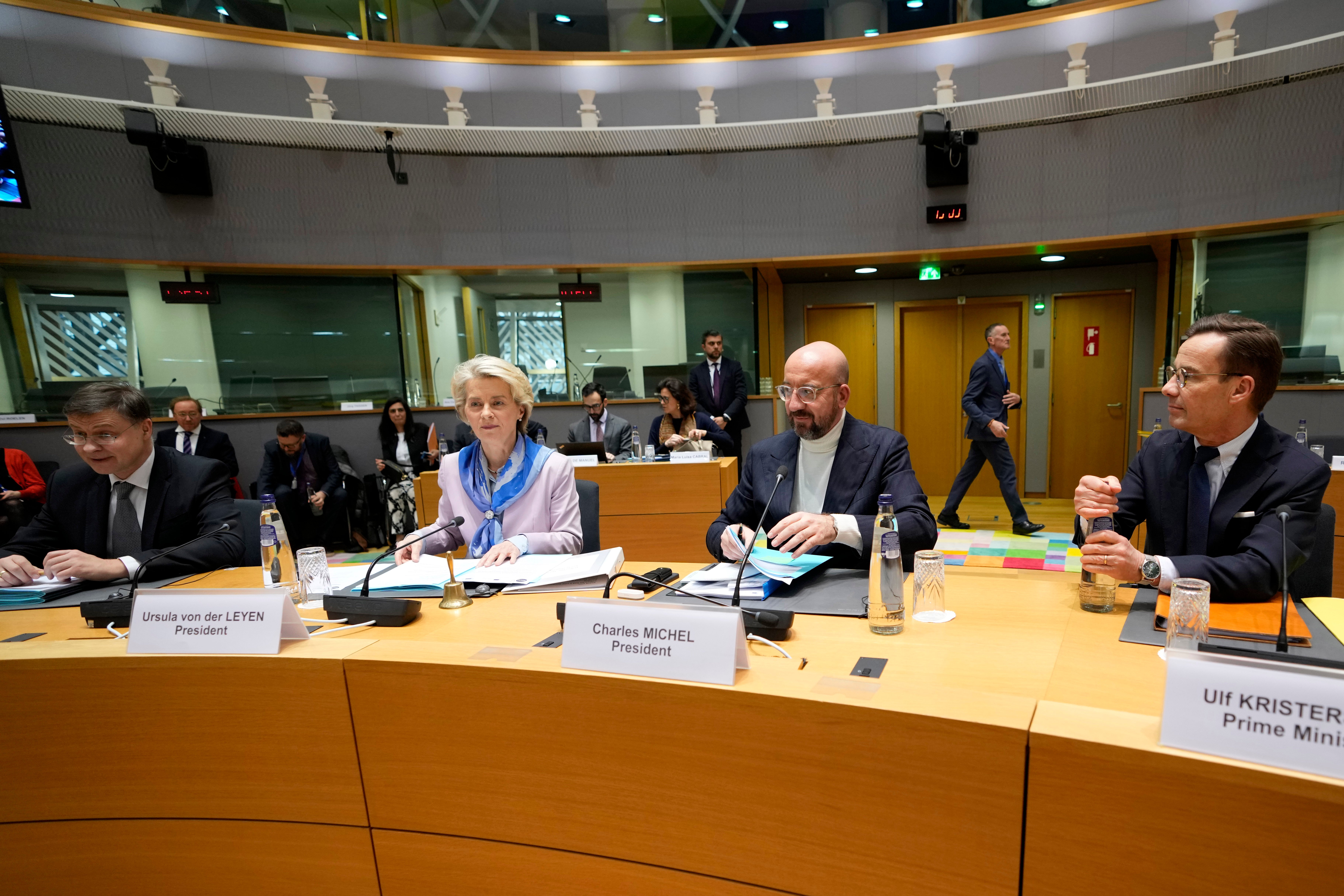EU leaders set to endorse more military support for Ukraine
EU leaders are set to endorse a deal aimed at sending Ukraine 1 million rounds of artillery shells within the next 12 months to help the country repel Russia’s invasion forces

Your support helps us to tell the story
From reproductive rights to climate change to Big Tech, The Independent is on the ground when the story is developing. Whether it's investigating the financials of Elon Musk's pro-Trump PAC or producing our latest documentary, 'The A Word', which shines a light on the American women fighting for reproductive rights, we know how important it is to parse out the facts from the messaging.
At such a critical moment in US history, we need reporters on the ground. Your donation allows us to keep sending journalists to speak to both sides of the story.
The Independent is trusted by Americans across the entire political spectrum. And unlike many other quality news outlets, we choose not to lock Americans out of our reporting and analysis with paywalls. We believe quality journalism should be available to everyone, paid for by those who can afford it.
Your support makes all the difference.EU leaders are set to endorse a deal aimed at sending to Ukraine 1 million rounds of artillery shells within the next 12 months to help the country counter Russia’s invasion forces.
The fast-track procedure was adopted during a meeting of foreign and defense ministers earlier this week, and leaders gathered at a summit in Brussels on Thursday will give it a political blessing, according to several senior EU diplomats.
With Ukraine facing shortages of ammunition to fight Russia, the idea of setting up a joint purchasing plan of action similar to the one devised during the coronavirus pandemic to buy vaccines was first brought to the table last month by Estonian Prime Minister Kaja Kallas.
EU foreign policy chief Josep Borrell said he has won approval for his proposal to provide 1 billion euros ($1.1 billion) to encourage member nations to provide artillery shells from their stocks and any orders for new rounds that they might have placed with industry.
A further 1 billion euros would also be used to fast-track new orders and encourage countries to work together on those purchases through the European Defense Agency or in groups of at least three nations.
Germany has already called for countries to join its own effort, which Berlin believes will go faster.
Among the 27 EU countries, Hungary has announced it will not take part in the supply of ammunition to Ukraine, citing its commitment to peace, but said it will not prevent other members from doing so by blocking the deal. Last month, Hungary's Prime Minister Viktor Orban said the bloc is partly to blame for prolonging Russia’s war in Ukraine by sanctioning Russia and supplying Ukraine with money and weapons, rather than seeking to negotiate peace with Moscow.
According to various estimates, Ukraine is firing 6,000-7,000 artillery shells daily, around a third of Russia’s total, one year into the war.
Leaders will also discuss the possibility of topping up with an extra 3.5 billion euros the European Peace Facility — a fund being used to reimburse member countries that provide weapons, ammunition and military support to Ukraine.
At their two-day meeting, leaders will be joined by U.N. Secretary General Antonio Guterres for lunch on Thursday, and Ukrainian President Volodymyr Zelenskyy will address the meeting via video link.
Other topics of discussion will include the bloc's competitiveness and its response to the $369 billion U.S. Inflation Reduction Act. energy. Friday's discussions will focus on the economic and financial situation.
___
Follow AP’s coverage of the war in Ukraine: https://apnews.com/hub/russia-ukraine
Subscribe to Independent Premium to bookmark this article
Want to bookmark your favourite articles and stories to read or reference later? Start your Independent Premium subscription today.